
Mikocheni: The Tranquil Urban Escape in Dar es Salaam
Mikocheni is a serene and charming neighbourhood located in the bustling city of Dar es Salaam, Tanzania. This area is perfect for tourists looking to experience both the vibrant urban life and the tranquil suburban atmosphere. With its tree-lined streets and a mix of modern and traditional architecture, Mikocheni offers a unique blend of old and new. The neighbourhood is known for its friendly residents and a variety of local eateries serving delicious Tanzanian cuisine. Visitors can enjoy a leisurely stroll through the local markets, where they can purchase handmade crafts and fresh produce. For those interested in learning about the local culture, Mikocheni is home to several cultural centers and museums. Mikocheni’s proximity to the Indian Ocean makes it an ideal spot for beach lovers. Just a short drive away, you can find some of the most beautiful beaches in Dar es Salaam. Whether you’re looking to soak up the sun, take a swim, or simply relax by the water, Mikocheni offers easy access to all these activities. In addition to its natural beauty, Mikocheni is also a hub for technology and innovation. The neighbourhood hosts several tech startups and business hubs, making it an exciting place for those interested in the tech scene. With its mix of relaxation and activity, Mikocheni is a must-visit destination for any tourist in Dar es Salaam.
Local tips in Mikocheni
- Visit Mlimani City Mall for a variety of shopping and dining options.
- Take a walk through Mikocheni B, known for its vibrant local markets.
- Don't miss the Mikocheni Cemetery, a historical site offering a glimpse into the area's past.
- Explore the local tech hubs and startups if you're interested in innovation.
- Plan a day trip to Coco Beach, just a short drive away.
Mikocheni: The Tranquil Urban Escape in Dar es Salaam
Mikocheni is a serene and charming neighbourhood located in the bustling city of Dar es Salaam, Tanzania. This area is perfect for tourists looking to experience both the vibrant urban life and the tranquil suburban atmosphere. With its tree-lined streets and a mix of modern and traditional architecture, Mikocheni offers a unique blend of old and new. The neighbourhood is known for its friendly residents and a variety of local eateries serving delicious Tanzanian cuisine. Visitors can enjoy a leisurely stroll through the local markets, where they can purchase handmade crafts and fresh produce. For those interested in learning about the local culture, Mikocheni is home to several cultural centers and museums. Mikocheni’s proximity to the Indian Ocean makes it an ideal spot for beach lovers. Just a short drive away, you can find some of the most beautiful beaches in Dar es Salaam. Whether you’re looking to soak up the sun, take a swim, or simply relax by the water, Mikocheni offers easy access to all these activities. In addition to its natural beauty, Mikocheni is also a hub for technology and innovation. The neighbourhood hosts several tech startups and business hubs, making it an exciting place for those interested in the tech scene. With its mix of relaxation and activity, Mikocheni is a must-visit destination for any tourist in Dar es Salaam.
Iconic landmarks you can’t miss
Kijiji cha Makumbusho/ Village Museum, Mikocheni
Discover Tanzania's cultural heritage at the Village Museum in Mikocheni, showcasing traditional architecture, art, and vibrant performances.
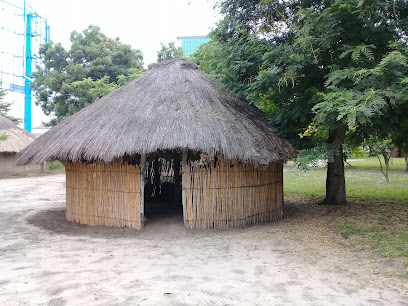
Makumbusho/ Village Museum, Mikocheni
Discover Tanzania's vibrant heritage at Makumbusho Village Museum, showcasing traditional culture, art, and interactive experiences in the heart of Dar es Salaam.
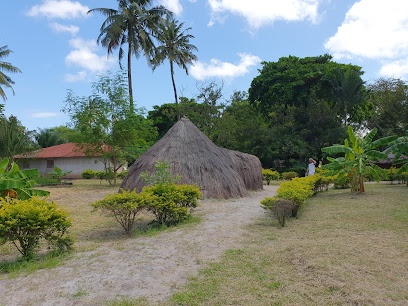
MWENGE WOODCAVERS MARKET
Explore Mwenge Woodcavers Market, a vibrant cultural center in Dar es Salaam known for exquisite wooden carvings and unique Tanzanian artistry.
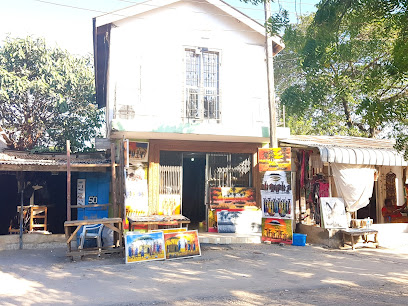
Tanzanite Tower
Explore Tanzanite Tower in Dar es Salaam for a dynamic shopping experience blending local culture, international brands, and delightful dining options.
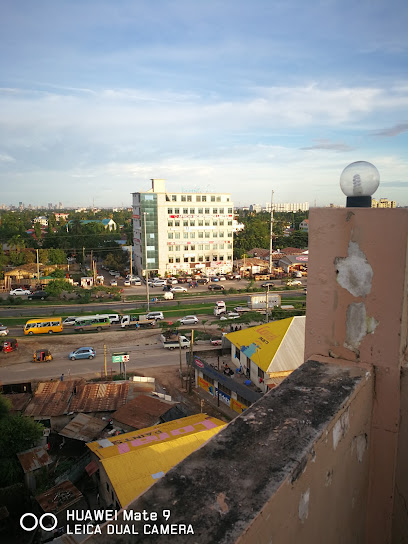
Askari Monument
Explore the Askari Monument in Dar es Salaam, a historical landmark honoring soldiers of World War I, and immerse yourself in Tanzania's rich heritage.
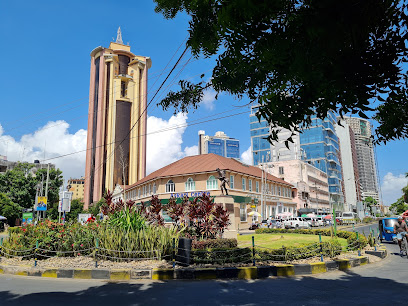
Uhuru Monument
Explore the Uhuru Monument in Dar es Salaam, a powerful symbol of Tanzania's independence and a must-visit tourist attraction.
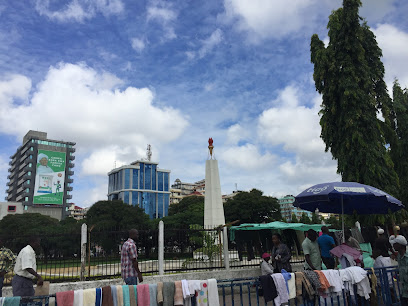
Undarey Art gallery
Discover the vibrant world of Tanzanian art at Undarey Art Gallery, where contemporary creativity meets cultural heritage in Dar es Salaam.
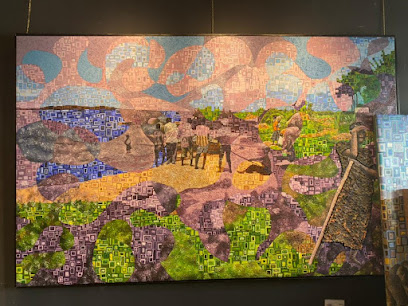
Dar es Salaam War Cemetery
Explore the Dar es Salaam War Cemetery, a serene tribute to bravery, history, and remembrance in Tanzania's vibrant capital.
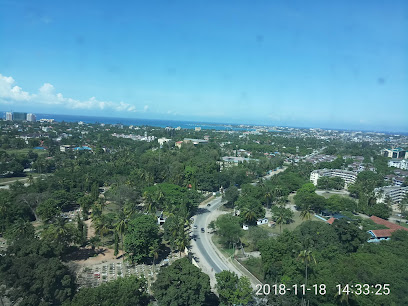
Mikocheni Garden
Explore the tranquil beauty of Mikocheni Garden in Dar es Salaam, a lush urban park perfect for relaxation and family outings.
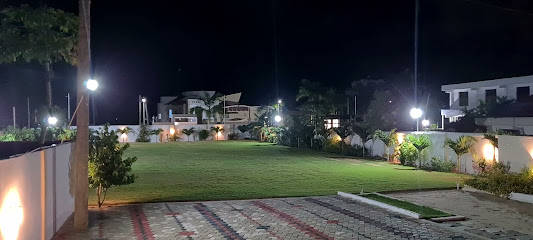
KWA CHAGGA
Experience the serenity of Kwa Chagga Park in Dar es Salaam, a lush retreat perfect for relaxation, picnics, and enjoying nature's beauty.
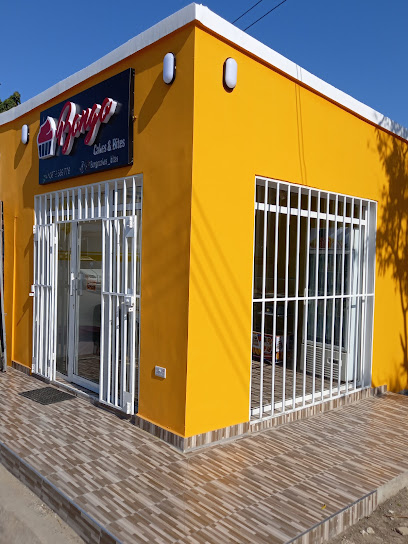
MIKOCHENI,DAR ES SALAAM
Discover the vibrant transportation hub of Mikocheni in Dar es Salaam, where culture meets convenience for every traveler.

Monument
Explore the rich history and stunning architecture of Dar es Salaam's iconic monument, a must-see for culture enthusiasts and history lovers alike.
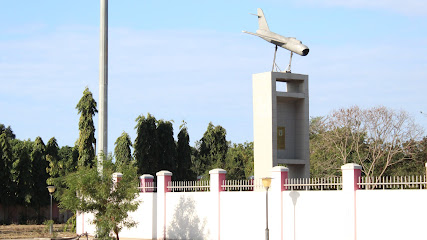
Unmissable attractions to see
Kijiji cha Makumbusho/ Village Museum, Mikocheni
Explore the vibrant traditions and cultural heritage of Tanzania at Kijiji cha Makumbusho, a unique village museum in Dar es Salaam.
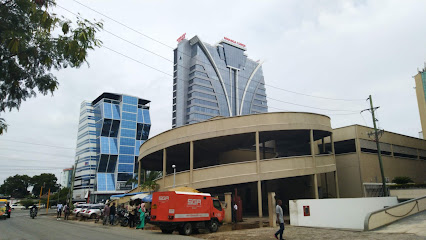
National Museum and House of Culture
Discover the rich tapestry of Tanzanian history and culture at the National Museum and House of Culture in Dar es Salaam.
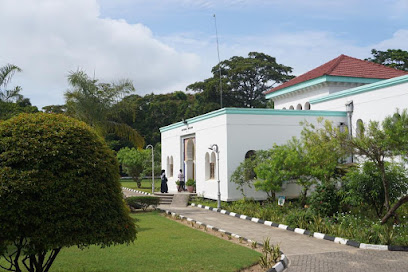
Kanisa Kuu la Mt. Yosefu (St.Joseph Cathedral Dar es Salaam)
Explore the stunning St. Joseph Cathedral in Dar es Salaam, a historical landmark blending Gothic architecture with rich local culture.
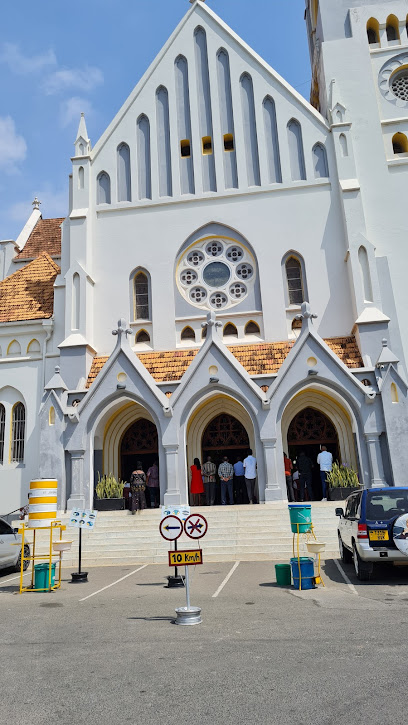
Water World
Experience the ultimate fun and relaxation at Water World, Dar es Salaam's premier water park with thrilling slides and family-friendly attractions.
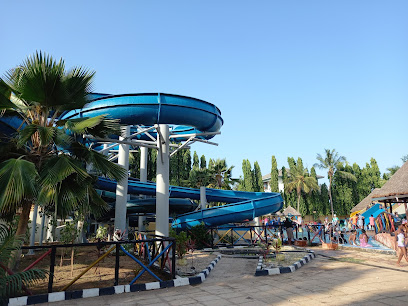
Botanical Garden
Discover the vibrant flora and tranquil beauty of Dar es Salaam's Botanical Garden, a perfect escape for nature lovers and explorers alike.
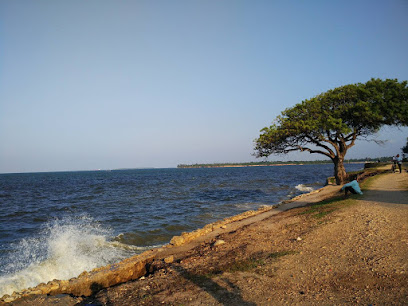
Mbalamwezi safaris and tours
Discover the breathtaking wildlife and natural beauty of Tanzania at Mbalamwezi Safaris and Tours in Dar es Salaam.

Dar es Salaam War Cemetery
Explore the Dar es Salaam War Cemetery, a serene memorial honoring soldiers of the World Wars, set in beautifully landscaped grounds.
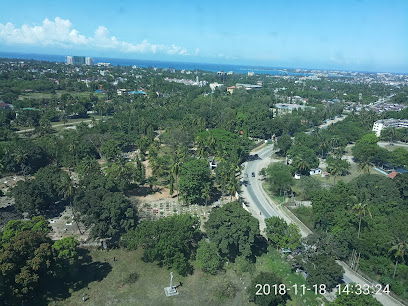
Mikocheni Garden
Discover tranquility at Mikocheni Garden, a lush green oasis in Dar es Salaam perfect for relaxation and family outings.
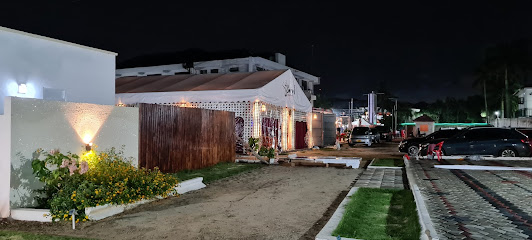
Bata Msituni Festival
Discover the Bata Msituni Festival in Dar es Salaam, where Tanzanian culture comes alive through vibrant music, dance, and delicious local cuisine.
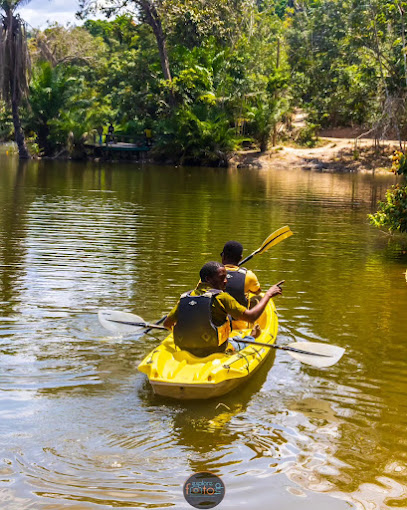
Baobab tree
Discover the enchanting Baobab tree in Dar es Salaam, a natural wonder that embodies the beauty and tradition of Tanzania's landscapes.
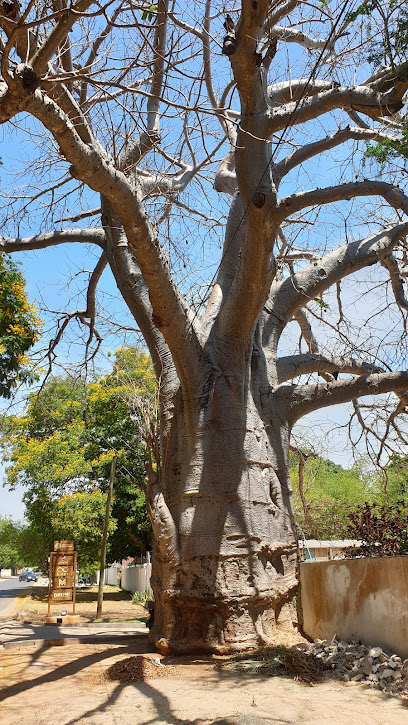
Mukul's Beach
Discover the serene beauty of Mukul's Beach, a tranquil escape in Dar es Salaam perfect for relaxation, stunning sunsets, and local flavors.
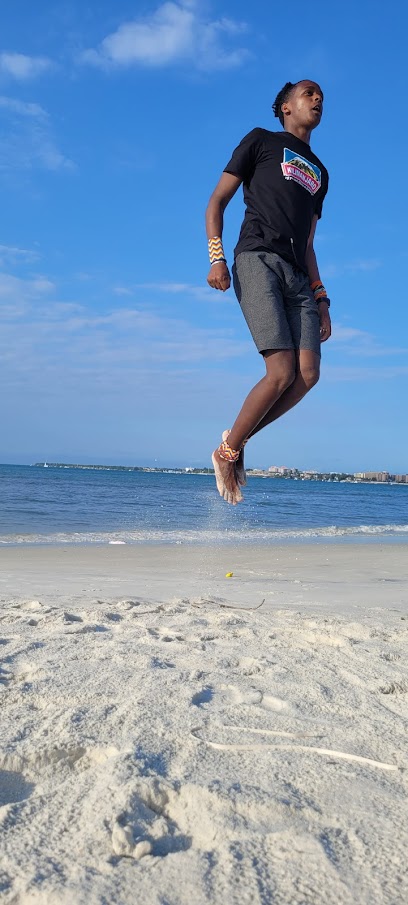
Baobab trees
Discover the enchanting Baobab trees in Dar es Salaam, iconic giants embodying Tanzania's rich natural heritage and perfect for unforgettable memories.
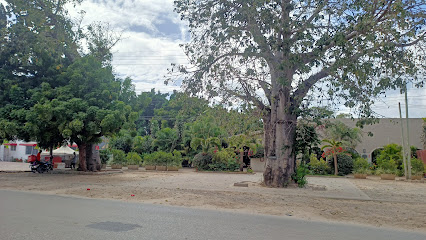
Mbuyu Circus
Explore the quirky charm of Mbuyu Circus in Dar es Salaam, where local talent meets vibrant entertainment in a unique circus experience.

Mission Kijichi Bridge
Explore the stunning Mission Kijichi Bridge in Dar es Salaam, a perfect blend of modern architecture and vibrant local culture.

Essential places to dine
Golden Fork (Swahili Cuisine), Mikocheni
Discover authentic Swahili flavors at Golden Fork in Mikocheni – a buffet paradise for food lovers seeking rich Tanzanian cuisine.
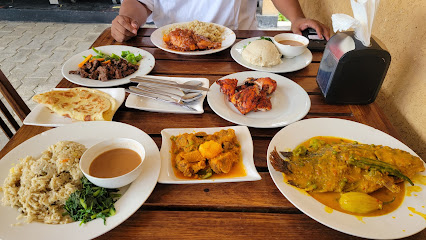
Rose Garden, Mikocheni
Experience serene dining at Rose Garden in Mikocheni, where vibrant blooms meet delicious Tanzanian cuisine amidst lush surroundings.
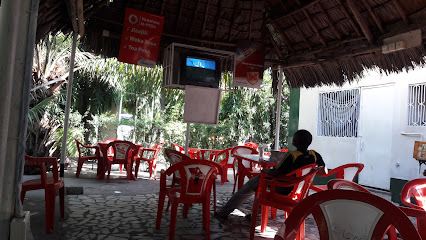
Jacques Salad and restaurant
Experience the best of Tanzanian cuisine at Jacques Salad and Restaurant—where fresh ingredients meet delightful flavors in an inviting atmosphere.
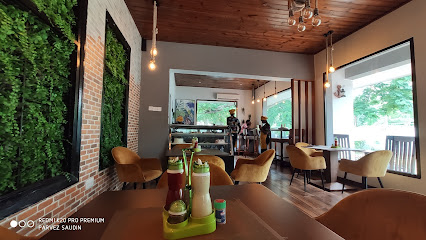
Mona bar and Restaurant mikocheni
Experience the best of Tanzanian cuisine at Mona Bar and Restaurant in Mikocheni – where flavors meet tradition in a vibrant atmosphere.
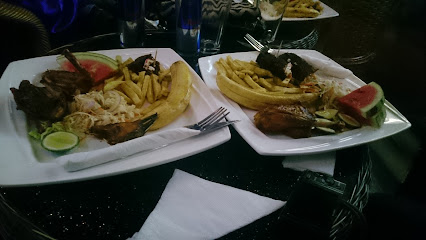
VEAL RESTAURANT
Experience the rich flavors of Tanzanian cuisine at Veal Restaurant in Dar es Salaam, where every dish tells a story.
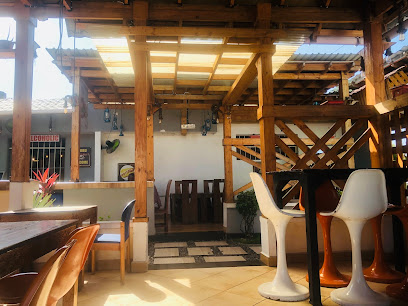
Sultan Turkish Restaurant
Experience authentic Turkish flavors at Sultan Turkish Restaurant in Mikocheni – where every dish tells a story.
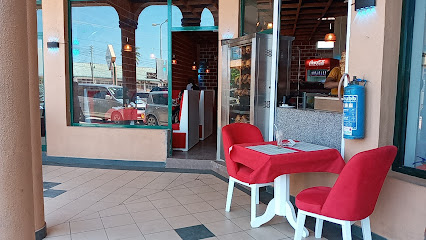
Ethos Tanzania
Discover the flavors of Tanzania at Ethos Tanzania in Dar es Salaam – where local cuisine meets vibrant atmosphere.
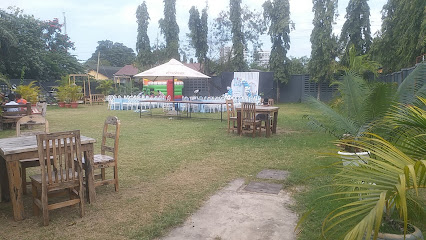
Kukurico Restaurant
Experience the vibrant flavors of Tanzania at Kukurico Restaurant in Dar es Salaam - where culinary tradition meets modern delight.
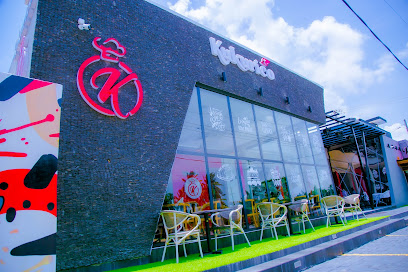
Barbecue bank
Experience authentic Tanzanian barbecue at Barbecue Bank in Dar es Salaam – where every meal is a flavorful celebration.
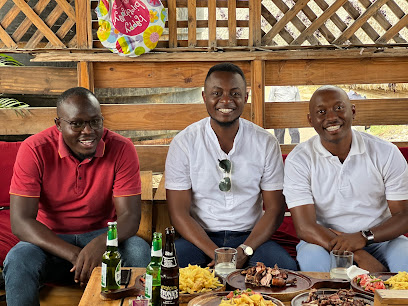
Bushoke Restaurant
Discover the authentic tastes of Tanzania at Bushoke Restaurant in Dar es Salaam - a culinary experience not to be missed!

Markets, malls and hidden boutiques
shop
Explore the vibrant CocaCola Rd Shop in Dar es Salaam for unique local crafts and authentic Tanzanian souvenirs.

The Mikocheni Boutique
Explore The Mikocheni Boutique in Dar es Salaam for an exquisite selection of women's fashion that embodies style and elegance.
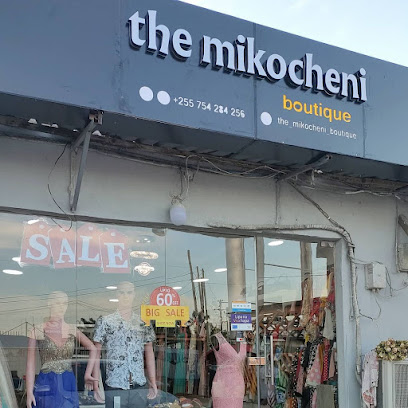
TANGANIGGA SHOP
Explore Tanganigga Shop in Dar es Salaam for unique home goods and authentic Tanzanian craftsmanship, perfect for souvenirs and gifts.
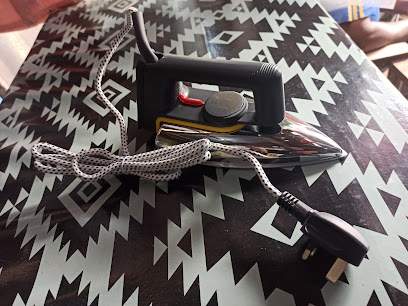
Tarimo Shop
Discover authentic Tanzanian crafts and souvenirs at Tarimo Shop, a must-visit destination for every traveler in Dar es Salaam.

Golden plaza shop Mikocheni dsm
Explore Golden Plaza Shop in Mikocheni, a treasure trove of unique home goods and local crafts in the heart of Dar es Salaam.
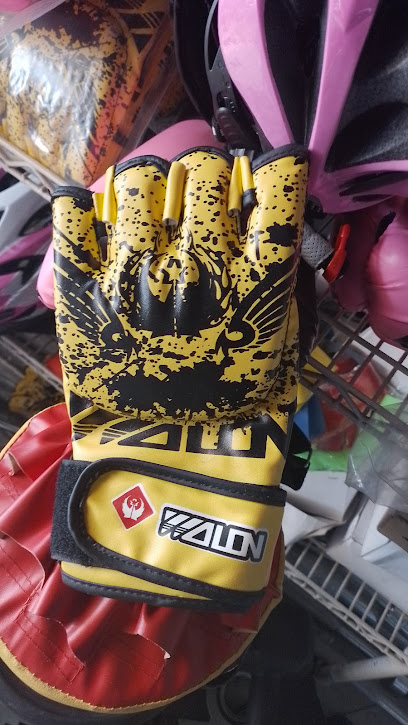
VPL Boutique
Explore the vibrant culture of Tanzania at VPL Boutique in Dar es Salaam, where unique fashion meets local craftsmanship.
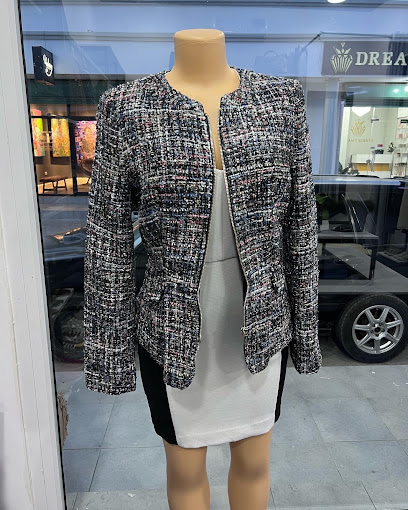
Gifts and Beauty Accessories
Discover the best of Tanzanian culture with unique gifts and beauty accessories in Dar es Salaam's charming gift shop.
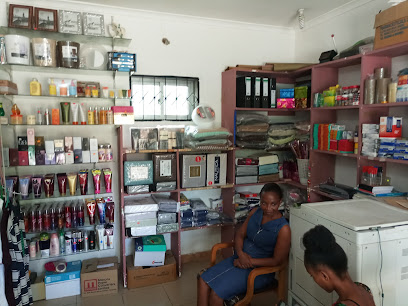
Gift Shop
Explore the vibrant culture of Tanzania at Dar es Salaam's Gift Shop, where unique souvenirs and local crafts await every traveler.

Alwaysmoving
Discover the essence of Tanzanian fashion at Alwaysmoving, where local culture meets contemporary style in Dar es Salaam.

Maliknmalikah shop
Explore unique Tanzanian fashion at Maliknmalikah Shop in Dar es Salaam, where local craftsmanship meets contemporary style.

Essential bars & hidden hideouts
TIPS Lounge, Mikocheni
Experience the vibrant culinary scene at TIPS Lounge in Mikocheni, a grill and lounge offering a delightful fusion of local and international flavors.
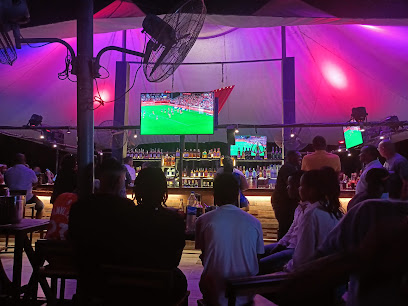
Polos Cocktail Bar
Discover the vibrant cocktail culture at Polos Cocktail Bar in Dar es Salaam, where unique drinks and a lively atmosphere await.
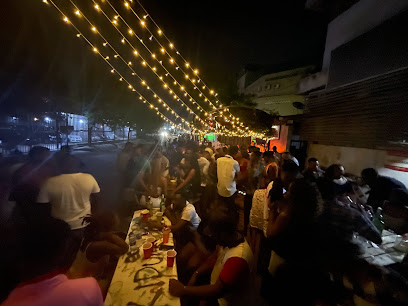
Cool Breeze pub
Experience the lively and welcoming atmosphere of Cool Breeze Pub in Dar es Salaam, where local culture and affordable drinks come together.
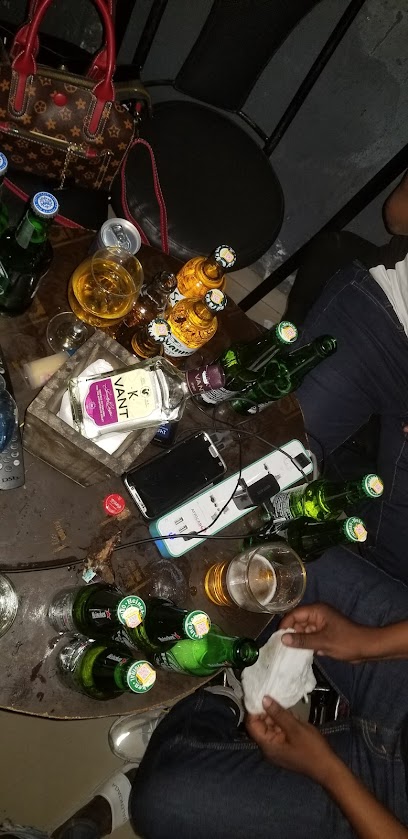
Fosters Pub
Experience the vibrant nightlife of Dar es Salaam at Fosters Pub, where great drinks, sports, and local culture come together.
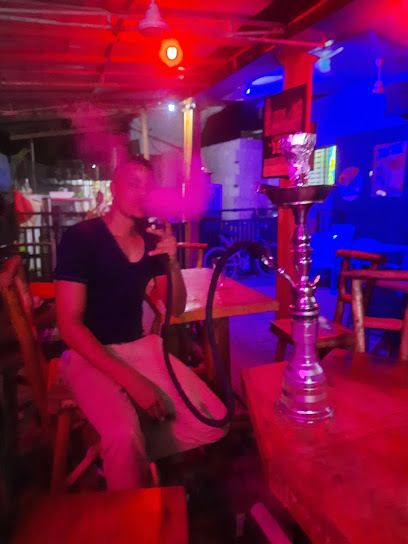
MARWA BAR MIKOCHENI
Experience the vibrant culinary scene at Marwa Bar Mikocheni, a favorite grill destination in Dar es Salaam offering delicious local and international dishes.

Malume Pub, Mikocheni
Discover the lively spirit of Dar es Salaam at Malume Pub, where local culture meets vibrant nightlife for an unforgettable experience.

Gift Pub
Discover the vibrant atmosphere and delicious grilled dishes at Gift Pub in Dar es Salaam, where local flavors meet a welcoming ambiance.
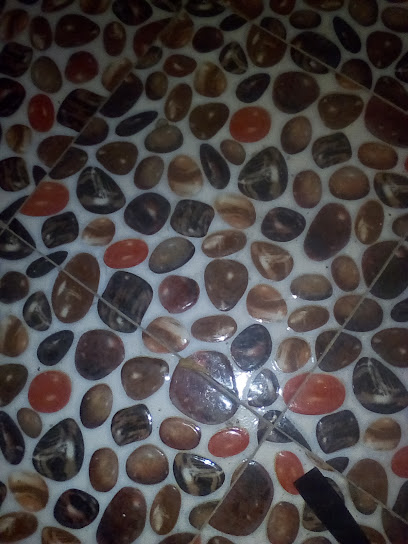
MEB's Pub
Experience the vibrant nightlife of Dar es Salaam at MEB's Pub, where locals and tourists come together over drinks and good cheer.

TAPAS PUB-MIKOCHENI
Experience the vibrant nightlife and delicious tapas at Tapas Pub-Mikocheni in Dar es Salaam, where cultural flavors meet lively atmosphere.

Fine Gang Pub
Experience the vibrant nightlife of Dar es Salaam at Fine Gang Pub, where local culture meets a lively bar atmosphere.

Local Phrases
-
- HelloJambo
[jahm-boh] - GoodbyeKwaheri
[kwah-heh-ree] - YesNdio
[nn-dee-oh] - NoHapana
[hah-pah-nah] - Please/You're welcomeTafadhali
[tah-fah-dah-lee] - Thank youAsante
[ah-san-teh] - Excuse me/SorrySamahani
[sah-mah-hah-nee] - How are you?Habari gani?
[hah-bah-ree gah-nee] - Fine. And you?Nzuri. Na wewe?
[n-zoo-ree. nah weh-weh] - Do you speak English?Unazungumza Kiingereza?
[oo-nah-zoo-ngoom-zah kee-een-geh-reh-zah] - I don't understandSielewi
[see-eh-leh-wee]
- HelloJambo
-
- I'd like to see the menu, pleaseNingependa kuona menyu, tafadhali
[nee-ngeh-pehn-dah koo-oh-nah meh-nyoo, tah-fah-dah-lee] - I don't eat meatSili nyama
[see-lee nyah-mah] - Cheers!Afya!
[ahf-yah] - I would like to pay, pleaseNingependa kulipa, tafadhali
[nee-ngeh-pehn-dah koo-lee-pah, tah-fah-dah-lee]
- I'd like to see the menu, pleaseNingependa kuona menyu, tafadhali
-
- Help!Msaada!
[msah-ah-dah] - Go away!Nenda zako!
[nen-dah zah-koh] - Call the Police!Piga simu polisi!
[pee-gah see-moo poh-lee-see] - Call a doctor!Piga simu daktari!
[pee-gah see-moo dahk-tah-ree] - I'm lostNimepotea
[nee-meh-poh-teh-ah] - I'm illNinaumwa
[nee-nah-oom-wah]
- Help!Msaada!
-
- I'd like to buy...Ningependa kununua...
[nee-ngeh-pehn-dah koo-noo-noo-ah] - I'm just lookingNatazama tu
[nah-tah-zah-mah too] - How much is it?Bei ni kiasi gani?
[beh-ee nee kee-ah-see gah-nee] - That's too expensiveHiyo ni ghali sana
[hee-yoh nee gah-lee sah-nah] - Can you lower the price?Unaweza kupunguza bei?
[oo-nah-weh-zah koo-poon-goo-zah beh-ee]
- I'd like to buy...Ningependa kununua...
-
- What time is it?Saa ngapi?
[sah-ah ngah-pee] - It's one o'clockNi saa moja
[nee sah-ah moh-jah] - Half past (10)Nusu saa kumi
[noo-soo sah-ah koo-mee] - MorningAsubuhi
[ah-soo-boo-hee] - AfternoonMchana
[m-chah-nah] - EveningJioni
[joh-ee-nee] - YesterdayJana
[jah-nah] - TodayLeo
[leh-oh] - TomorrowKesho
[keh-shoh] - 1Moja
[moh-jah] - 2Mbili
[m-bee-lee] - 3Tatu
[tah-too] - 4Nne
[nn-neh] - 5Tano
[tah-noh] - 6Sita
[see-tah] - 7Saba
[sah-bah] - 8Nane
[nah-neh] - 9Tisa
[tee-sah] - 10Kumi
[koo-mee]
- What time is it?Saa ngapi?
-
- Where's a/the...?Iko wapi...?
[ee-koh wah-pee] - What's the address?Anuani ni ipi?
[ah-noo-ah-nee nee ee-pee] - Can you show me (on the map)?Unaweza kunionyesha (kwenye ramani)?
[oo-nah-weh-zah koo-nee-oh-nyeh-shah kweh-neh rah-mah-nee] - When's the next (bus)?Basi lijalo ni saa ngapi?
[bah-see lee-jah-loh nee sah-ah ngah-pee] - A ticket (to ....)Tiketi (kwenda ...)
[tee-keh-tee kwehn-dah]
- Where's a/the...?Iko wapi...?
History of Mikocheni
-
Mikocheni's history traces back to the pre-colonial era, where it served as a significant settlement for various tribes, including the Zaramo and Ngoni. The region's fertile land and access to the coast made it an essential area for agriculture and trade, facilitating interactions with various coastal communities engaged in the Indian Ocean trade.
-
During the late 19th century, as European powers scrambled for Africa, Mikocheni began to experience the influences of colonialism. The establishment of German East Africa led to infrastructural developments in the area, transforming it into a more structured settlement. The introduction of cash crops, such as sisal and cotton, marked a shift in the local economy, altering traditional agricultural practices.
-
Post-independence in the 1960s, Mikocheni underwent significant urbanization as Dar es Salaam expanded rapidly. The government initiated various development projects, which brought an influx of people to the area, leading to a diverse urban community. This period also saw the establishment of educational institutions and healthcare facilities, contributing to the neighbourhood's growth.
-
Mikocheni is known for its diverse cultural landscape, reflecting a mixture of ethnic groups, including the Swahili, Indian, and Arab communities. This cultural blend is evident in local cuisine, music, and festivals, which celebrate both traditional and modern influences. The neighbourhood hosts various markets and eateries where visitors can experience the rich tapestry of Tanzanian culture.
-
In recent years, Mikocheni has seen rapid development, with new residential and commercial spaces emerging. However, this growth has also brought challenges, including overcrowding and infrastructural strain. The community is actively engaged in discussions about sustainable development to preserve its unique character while accommodating the needs of a growing population.
Mikocheni Essentials
-
Mikocheni is accessible from various neighbourhoods in Dar es Salaam. From the city center, you can take a taxi or a ride-hailing service, which takes approximately 20-30 minutes depending on traffic. Alternatively, local buses (daladalas) heading towards Mikocheni can be caught from designated bus stops in the city. If arriving from Julius Nyerere International Airport, taxis are readily available, and the journey to Mikocheni typically takes around 30-45 minutes.
-
Mikocheni is well-connected with local transportation options. You can use daladalas for short trips, which are frequent and affordable. Taxis and ride-hailing services are also available for more convenience. For a more local experience, consider renting a bicycle to explore the neighbourhood at a leisurely pace. Walking is another option, especially in the daytime, as many attractions are within walking distance.
-
Mikocheni is generally safe for tourists, but it's crucial to remain vigilant. Areas closer to the city center tend to have higher crime rates, particularly at night. Avoid walking alone after dark and keep valuables out of sight. While incidents are rare, petty theft can occur, so it's advisable to stay aware of your surroundings, especially in crowded areas.
-
In case of an emergency, dial 112 for police assistance or 0755 000 000 for medical emergencies. There are local clinics and hospitals in Mikocheni, including the Mikocheni Hospital. It's recommended to have travel insurance that covers medical emergencies. For minor health issues, local pharmacies are available for over-the-counter medications.
-
Fashion: Do dress modestly, especially in public spaces and when visiting local markets. Avoid overly revealing clothing. Religion: Do respect local customs; when visiting religious sites, ensure your attire is appropriate. Public Transport: Do give up your seat for elderly passengers and be courteous. Don't eat or drink on public transport. Greetings: Do greet locals with a handshake and a smile. Eating & Drinking: Do try local dishes, and if invited to share a meal, accept graciously. Don't waste food or refuse hospitality, as it may be considered rude.
-
To experience Mikocheni like a local, visit the nearby Mikocheni Market for fresh produce and local delicacies. Engage with vendors and learn about traditional foods. Explore local cafes for authentic Tanzanian coffee and snacks. If you're interested in local culture, attend community events or visit local art galleries showcasing Tanzanian artists. Additionally, try to learn a few Swahili phrases; locals appreciate when visitors make an effort to speak their language.
Nearby Cities to Mikocheni
-
Things To Do in Zanzibar City
-
Things To Do in Stone Town
-
Things To Do in Morogoro
-
Things To Do in Tanga
-
Things To Do in Diani Beach
-
Things To Do in Mombasa
-
Things To Do in Dodoma
-
Things To Do in Malindi
-
Things To Do in Iringa
-
Things To Do in Moshi
-
Things To Do in Arusha
-
Things To Do in Lamu
-
Things To Do in Singida
-
Things To Do in Nairobi
-
Things To Do in Mbeya






